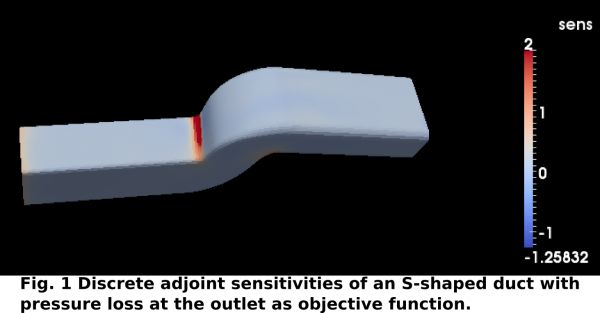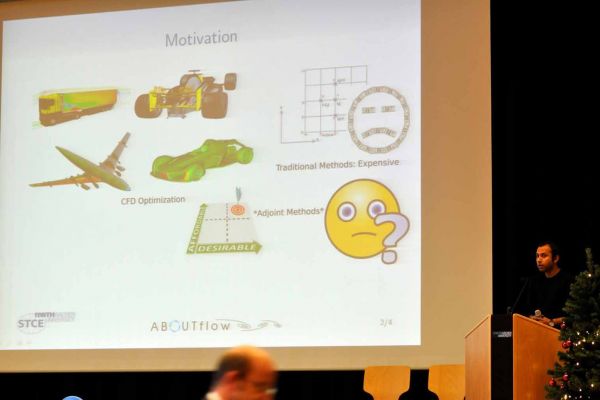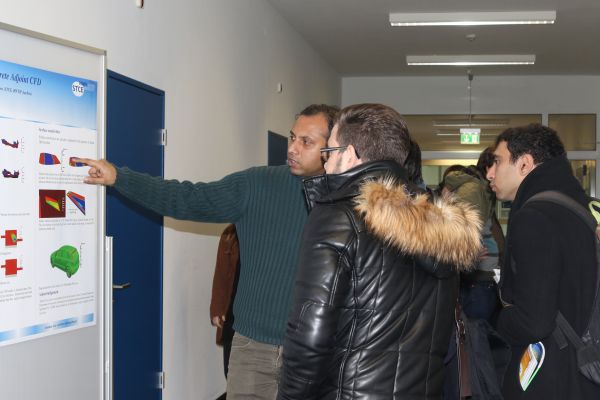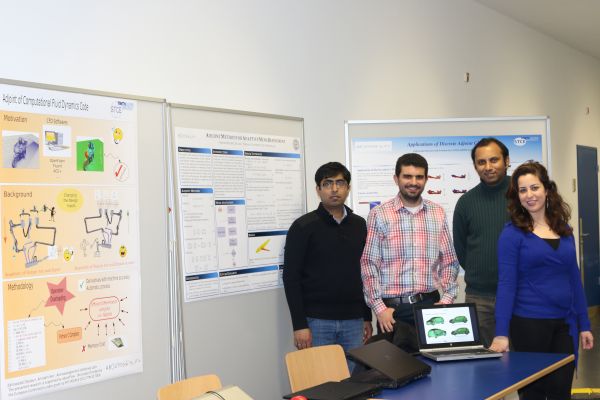Research Fellows
Arindam Sen
Early Stage Researcher at RWTH

I was born in Kolkata (previously, Calcutta), the largest metropolitan in the East of India and spent my formative years in Varanasi, an ancient city in the North of India on the banks of river Ganges which is one of the oldest continually inhabited cities in the world , a famous site of pilgrimage with lots of temples. After schooling, I joined VIT University, India for my undergraduate studies where I was awarded Bachelor Degrees in Mechanical Engineering and Information Technology in 2009.
Following this, I joined the Laboratory of Computational Fluid Dynamics in the Department of Chemical Engineering, University of Patras in Greece as a Research Assistant. I was awarded the Masters Degree of Science in Chemical Engineering from the same University in 2012.
My extra-research interests are traveling, exploring different cultures, sports, cinema and geopolitics.
I am presently employed as an Early Stage Researcher at RWTH Aachen University in the aboutFLOW project. In aboutFLOW, we as a group look at the approach of Adjoint-based methods in CFD optimization pertaining to their potentially low computational cost. My objective in the project is to enable large-scale sensitivity analysis and nonlinear optimization by discrete adjoint methods based on a widely used Open Source CFD tool package, OpenFOAM. The aim is to generate an optimized discrete adjoint version of OpenFOAM by algorithmic differentiation (AD) with dco/c++, an overloading tool developed in-house at Software and Tools for Computational Engineering (STCE), RWTH Aachen, by exploration of structural and mathematical properties. The collaboration of Industries and Academia within aboutFLOW enables a young researcher like me to develop key technical skills within an International environment by means of interaction and knowledge sharing. aboutFLOW within its scope also facilitates via Secondments, Outreach programs and soft skills training, planning into the future by amalgamating rigorous research with development of key personal and organizational skills.
I am quite certain that the experience in aboutFLOW will stand me in good stead as a future scientific researcher.
Objectives:
1. Large scale sensitivity analysis and (robust) non linear optimization by discrete adjoint methods based on OpenFOAM
2. Optimization of discrete tangent-linear and adjoint versions of OpenFOAM by algorithmic differentiation (AD) with dco/c++ through exploitation of structural and mathematical properties
Contribute to Work Packages
Adjoint based methods are an effective way to obtain accurate gradients for CFD optimization problems since the computation cost for the calculation of these gradients is relatively independent of the degrees of freedom. At the heart of such an optimization process lies the computation of topology sensitivity maps. Sensitivities are derivatives of an objective function resulting from CFD computations with respect to meaningful design variables.
My research focusses on obtaining a discrete adjoint version of OpenFOAM, an open-source CFD toolbox widely used for industrial applications, using operator overloading Algorithmic Differentiation(AD) tool, dco/c++.

The two most common approaches for computing adjoint based sensitivities are continuous and discrete. The continuous approach is mostly employed at the equation-level, where the adjoint equations are analytically derived by turning the primal equations inside-out. These equations are then discretized and solved simultaneously alongside the primal equations. The discrete approach in contrast directly differentiates the entire solution procedure of the primal leading to sensitivities consistent with the discretization. The discrete approach can commonly be applied using two methods: source to source transformation that is typically done by AD tools like TAPENADE and by operator overloading, like in our case, using dco/c++. The high level of object-orientation in the C++ code of OpenFOAM takes source-transformation out of the picture, hence we opt for the later.
Discrete adjoints have the distinct advantage of robustness and flexibility over its continuous counterpart. In some cases, as in the k-omega turbulence model, continuous approach suffers from the problem of non-differentiability.
To our end, we have obtained a discrete adjoint version of OpenFOAM v2.3.x, and have built adjoint versions of general purpose solvers inside the incompressible domain viz. simpleFoam, pisoFoam. Discrete approach are known to be severely expensive in terms of both memory requirements and runtime, which often proves to be the bottleneck while tackling industrial problems. Therefore we applied standard AD techniques such as Binomial checkpointing, Analytical treatment of the linear solver and reverse accumulation to our discrete adjoint framework to bring down both memory and runtime expenses. This framework has been validated against the continuous adjoint implementation and has been successfully applied to industrial test cases of both steady and unsteady nature with considerable success. Work is in progress to further tackle the memory and runtime issues by accounting for recent developments in solution procedures such as fully-implicit coupled solvers, 'intelligent' coupling of continuous and discrete adjoint implementations, parallel computation of adjoints using adjoint-MPI.
The public outreach event was the Science Tunnel conducted as part of the 'Tag der Informatik' on December 4, 2015 at RWTH Aachen. 4 Research Fellows participated in the event from AboutFlow, me, Zahrasadat Dastouri (RWTH Aachen), Sheikh Razibul Islam (WUT) and Nikolaos Magoulas (VW). The Science Tunnel event was attended by Diploma students from the university alongwith their parents, enthusiastic school students and representatives of various industries. The event was a perfect oppurtunity for us to showcase the research progress under AboutFlow to a wide range of age groups from diverse backgrounds.
The presentations comprised of posters and video illustrations of adjoint based CFD. The posters prepared covered both basics and industrial problems of significant relevance. My poster underlined the potential applications of discrete adjoint based CFD in automotive/aerodynamic applications. The poster attracted curious onlookers who then were encouraged to pose questions about CFD and adjoint based CFD, thus allowing us to explain to them the nature of our research work.
As part of the Tag der informatik event in 2014, I also participated in a JAM (Just a minute) session, with the basic objective of explaining the research work under AboutFlow in easily decipherable terms within the stipulation of a minute.

The events were a success in terms of Outreach since a good interaction was achieved and various questions were raised by members of the public who showed good interest in our research work.




